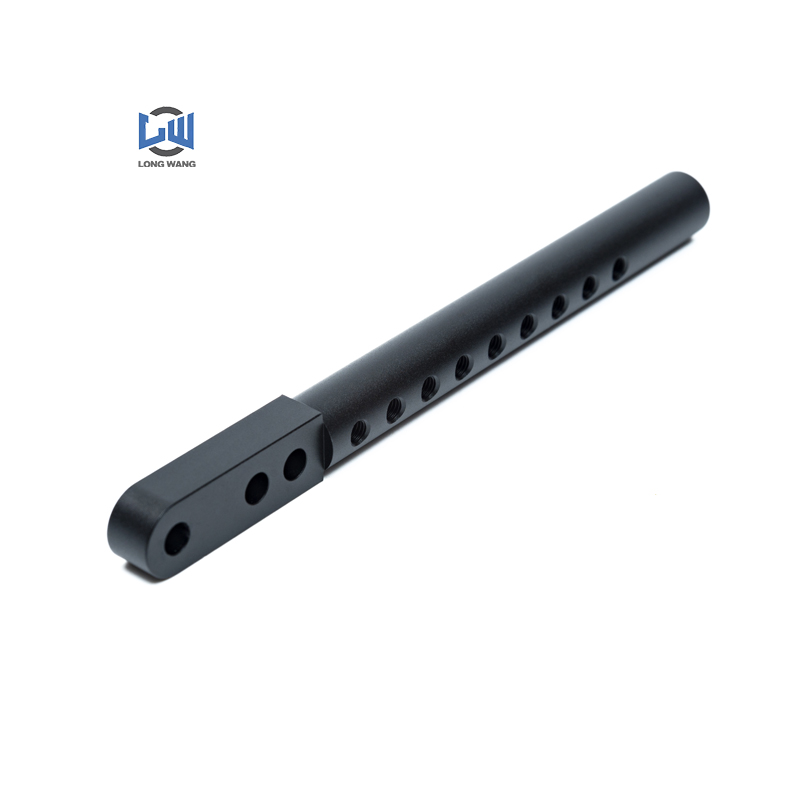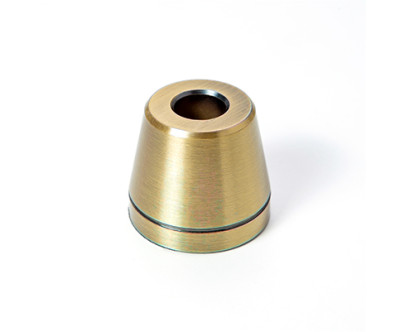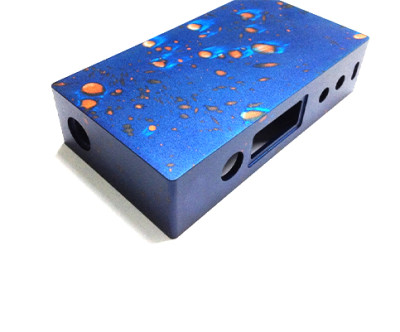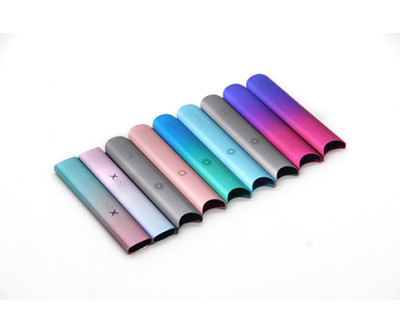Why Choose Custom Aluminum Parts Manufacturing? Benefits and Industry Applications
In today’s rapidly evolving industries, businesses face the constant challenge of creating innovative products that meet precise specifications, deliver high performance, and offer long-lasting durability. Custom aluminum parts manufacturing has become an integral solution for many industries that require tailored components to meet specific needs. Aluminum, a lightweight yet strong and corrosion-resistant material, is widely used in various sectors ranging from automotive and aerospace to electronics and medical devices. This article will explore the benefits of custom aluminum parts manufacturing and the key industries that benefit from these custom solutions.
The Benefits of Custom Aluminum Parts Manufacturing
1. Tailored to Specific Requirements
One of the most significant advantages of custom aluminum parts is that they can be designed and manufactured according to the exact specifications of the customer. Unlike off-the-shelf parts, which may only meet general requirements, custom parts ensure that the component fits seamlessly into the product, optimizing functionality and performance.
Custom parts allow for the consideration of unique parameters such as:
Size and Shape: Whether you need small, intricate parts or large structural components, custom manufacturing can accommodate precise dimensions and tolerances.
Material Requirements: Different applications may require specific aluminum alloys, such as 6061 for general purposes or 7075 for high-strength applications. Custom manufacturing allows for the use of the exact material that suits the needs of your project.
Surface Finishes: Custom parts can be finished with specific coatings like anodizing, powder coating, or polishing to enhance appearance, durability, and resistance to corrosion.
2. High Precision and Accuracy
Custom aluminum parts are typically manufactured using advanced processes like CNC machining, die casting, or 3D printing. These technologies ensure that the parts meet high standards of precision and accuracy. For industries like aerospace and medical devices, where even the slightest deviation can lead to product failure, custom aluminum parts provide the assurance that every detail is meticulously crafted.
CNC machining (Computer Numerical Control) is particularly beneficial for achieving high precision. CNC machines can make cuts, drills, and other modifications with incredible accuracy, producing parts with very tight tolerances. This level of precision ensures that custom parts fit perfectly, enhancing the overall performance and reliability of the end product.
3. Cost Efficiency for Large-Scale Production
While custom manufacturing might seem expensive upfront, it can actually be cost-effective, especially for large production runs. By producing parts that are precisely tailored to the project, manufacturers can eliminate waste and reduce the need for further modifications.
In the long run, custom aluminum parts can save money by reducing:
Material waste: Parts are designed specifically to reduce excess material usage, which lowers material costs.
Labor costs: Precision in design and machining means fewer errors and less time spent on rework.
Assembly time: Custom parts fit together better and may require less time for assembly, reducing labor expenses.
4. Lightweight and Strong
Aluminum is a naturally lightweight material with excellent strength-to-weight ratios, making it an ideal choice for custom parts that need to be both strong and light. In applications like aerospace, automotive, and sports equipment, the ability to reduce the weight of parts without compromising their strength is crucial for improving fuel efficiency, speed, and overall performance.
Unlike heavier metals, aluminum’s lightweight nature does not compromise its strength. Aluminum alloys like 6061, 5052, and 7075 offer varying levels of strength, which can be chosen based on the specific application. This balance of strength and lightness allows manufacturers to create components that enhance the overall efficiency of products without adding unnecessary weight.
5. Excellent Corrosion Resistance
Another significant benefit of aluminum parts is their inherent corrosion resistance. Aluminum naturally forms an oxide layer when exposed to air, which protects the material from further oxidation. This makes custom aluminum parts highly durable and suitable for use in harsh environments such as marine, industrial, and chemical applications.
The ability to resist corrosion without the need for additional coatings is a key advantage, especially in industries where parts are exposed to moisture, chemicals, or other corrosive elements. Even in high-temperature environments, aluminum maintains its strength and integrity, ensuring the long-term reliability of custom components.
6. Sustainable Manufacturing
As businesses and industries increasingly focus on sustainability, aluminum’s recyclability offers another compelling reason to choose it for custom parts manufacturing. Aluminum is 100% recyclable without losing its properties, and it requires significantly less energy to recycle than to produce new aluminum. By opting for custom aluminum parts, companies contribute to reducing waste and promoting environmental sustainability.
Industry Applications of Custom Aluminum Parts
1. Aerospace Industry
The aerospace industry relies heavily on custom aluminum parts due to their strength, light weight, and resistance to corrosion. From aircraft components such as wings, fuselages, and engine parts to satellite components, custom aluminum parts ensure that every piece meets strict performance standards. The ability to create parts with precise tolerances is crucial in aerospace, where safety and reliability are paramount.
Aluminum alloys like 7075 and 2024 are commonly used in aerospace applications due to their high strength-to-weight ratio and resistance to fatigue. Custom manufacturing allows aerospace engineers to design parts that are tailored to specific aircraft models, improving fuel efficiency and overall performance.
2. Automotive Industry
In the automotive sector, reducing weight is critical for improving fuel efficiency, handling, and performance. Custom aluminum parts play a significant role in this process, from body panels to engine components and suspension parts. By choosing lightweight yet durable aluminum, manufacturers can reduce vehicle weight while maintaining safety and performance.
Aluminum is also used for heat exchangers, radiator components, and wheels. Custom aluminum parts allow automotive manufacturers to meet specific design and performance criteria, including high-strength materials for safety-critical applications.
3. Electronics Industry
The electronics industry uses custom aluminum parts for housing, heat sinks, and enclosures for sensitive components. Aluminum's ability to dissipate heat efficiently makes it an ideal material for managing the temperature of electronic devices, such as computers, smartphones, and LED lighting systems.
Custom aluminum parts are essential for creating sleek, durable, and functional designs that protect internal components from external elements. For example, custom aluminum enclosures for electronics can be designed to integrate seamlessly with other parts of a device while providing reliable thermal management.
4. Medical Devices
In the medical industry, precision and reliability are critical. Custom aluminum parts are often used in devices such as diagnostic equipment, surgical instruments, and implants. The lightweight nature of aluminum is beneficial for patient comfort, while its durability ensures that medical devices can withstand frequent use and sterilization processes.
Custom aluminum parts in medical devices are often designed with specific materials that meet FDA standards for biocompatibility, ensuring that they are safe for use in medical procedures. Aluminum’s corrosion resistance also plays a key role in ensuring that medical components remain sterile and functional over time.
5. Renewable Energy
In the renewable energy sector, custom aluminum parts are used in the construction of solar panels, wind turbines, and other sustainable energy systems. Aluminum’s resistance to corrosion and its lightweight properties make it an ideal choice for these applications, ensuring that components perform optimally in harsh outdoor environments.
Custom aluminum parts can be designed for specific energy systems, maximizing efficiency and performance. For example, custom frames for solar panels are made from aluminum to enhance durability while reducing the weight of the panel structure.
Conclusion
Custom aluminum parts manufacturing provides numerous benefits, from tailored solutions that meet specific needs to cost efficiency, precision, and strength. Whether it’s for aerospace, automotive, electronics, or renewable energy applications, aluminum parts offer a versatile, durable, and sustainable solution. The ability to create custom components that are lightweight, strong, and resistant to corrosion makes aluminum an ideal material for a wide range of industries. By investing in custom aluminum parts, businesses can ensure high-quality products that meet the exact specifications necessary for success in today’s competitive market.
As industries continue to innovate and evolve, custom aluminum parts manufacturing will remain at the forefront, providing the precision, flexibility, and durability required for cutting-edge products and applications.



